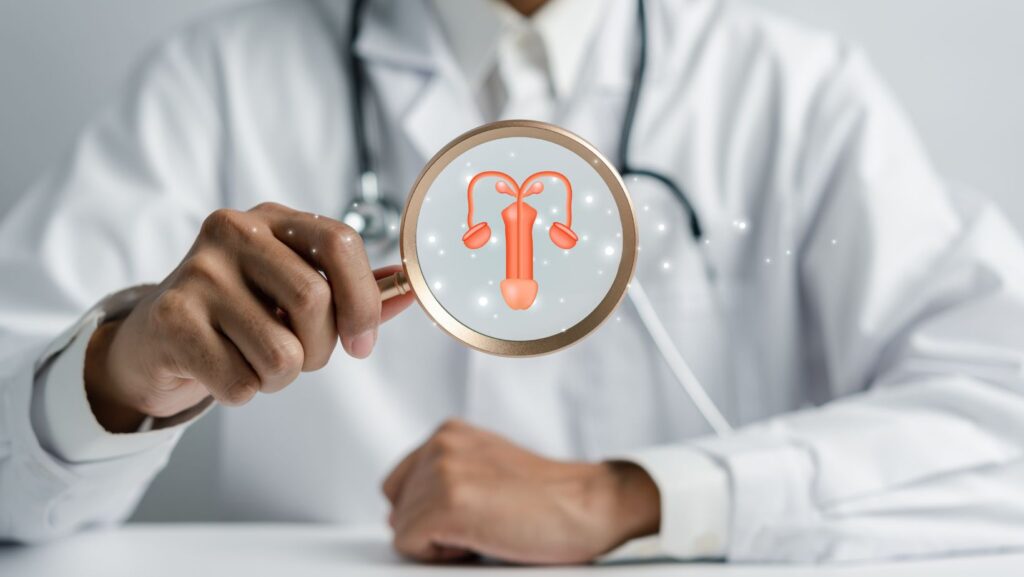
Reproductive health plays a crucial role in your overall well-being, yet it’s a topic that doesn’t always get the attention it deserves. While it can be uncomfortable to discuss, recognizing potential issues early can prevent long-term complications and improve your quality of life. Understanding the signs of poor reproductive health empowers you to take proactive steps toward addressing them.
Men often overlook subtle changes in their health that could indicate underlying problems. Symptoms like changes in sexual function, unexplained pain, or hormonal shifts are all important indicators of reproductive health concerns. This guide will outline the key warning signs to watch for, helping you stay informed and take control of your health.
Changes in Sexual Function
One of the most noticeable signs of poor male reproductive health is a change in sexual function. If you’re experiencing difficulties such as erectile dysfunction, reduced libido, or inability to maintain an erection, it’s worth addressing. These issues may stem from hormonal imbalances, cardiovascular problems, or even stress and anxiety. Persistent problems in this area shouldn’t be dismissed as just part of aging.
Low sperm count or difficulty conceiving can also indicate underlying reproductive health issues. Fertility problems are often linked to factors such as poor lifestyle habits, exposure to toxins, or medical conditions like varicoceles. Seeking professional advice early can lead to effective treatment options.
Changes In Urination Patterns
Frequent urination, difficulty starting or stopping urination, or pain during urination might indicate an issue with your prostate or urinary tract. Prostate problems, such as benign prostatic hyperplasia (BPH) or prostatitis, can interfere with reproductive health. In some cases, these symptoms may signal prostate cancer, which is more treatable when caught early.
If you’re noticing any changes in your urination habits, it’s essential to seek medical attention. Proper evaluation can determine whether the issue is related to your prostate, urinary tract, or another underlying condition.
For those in Texas, consulting experienced Houston urologists can provide specialized care and guidance. These professionals are equipped to diagnose and treat a wide range of urological issues, ensuring you receive the best possible care tailored to your needs.
Unexplained Pain or Swelling
Pain or swelling in the testicles is another red flag that could signal poor reproductive health. Conditions like epididymitis, orchitis, or testicular torsion can cause discomfort and swelling, sometimes accompanied by fever or other symptoms. Additionally, persistent testicular pain might be a symptom of testicular cancer, which requires immediate attention.
You should also watch for swelling in other areas, such as the groin, which might indicate issues like hernias or infections that can affect your reproductive organs. Ignoring these signs could lead to severe complications.
Hormonal Changes
Hormonal imbalances play a significant role in reproductive health. If you’re noticing symptoms like reduced energy levels, mood swings, loss of muscle mass, or increased body fat, it might indicate low testosterone levels. This condition, known as hypogonadism, can affect your fertility, sexual function, and overall health. Left untreated, hormonal imbalances can contribute to chronic illnesses such as osteoporosis or heart disease.
Paying attention to subtle changes in your physical and emotional health can help identify hormonal issues early. Simple blood tests can measure testosterone levels and provide clarity on what’s happening in your body.
Abnormal Discharge or Symptoms of STIs
Unusual discharge from the penis, burning sensations during urination, or visible sores and rashes can be symptoms of sexually transmitted infections (STIs). These infections, such as chlamydia, gonorrhea, or syphilis, can impact your reproductive health significantly if left untreated. Some STIs can even lead to infertility or long-term complications like pelvic inflammatory disease in partners.
Even if symptoms are mild or intermittent, addressing them promptly with a healthcare provider ensures proper treatment and prevents further damage to your reproductive system.
Persistent Fatigue or Weakness
While occasional tiredness is normal, chronic fatigue or unexplained weakness could be a warning sign of underlying health issues, including reproductive health problems. Conditions like anemia, hormonal imbalances, or chronic infections can contribute to these symptoms. Fatigue may also result from stress, poor diet, or lack of exercise, all of which can negatively impact reproductive health.
Taking steps to improve your lifestyle, such as eating a balanced diet, exercising regularly, and managing stress, can help restore energy levels and improve overall well-being. However, if fatigue persists, it’s essential to consult a healthcare provider for further evaluation.
Lumps or Changes in Testicular Shape
Regular testicular self-examinations are crucial for identifying abnormalities early. If you notice lumps, changes in size or shape, or an unusual feeling of heaviness, it could indicate a serious issue like testicular cancer.
Men of all ages should make testicular self-exams a routine practice, especially those with a family history of testicular cancer. Regular check-ups with a healthcare provider are equally important for early detection and prevention.
Chronic Stress and Mental Health Challenges
Your mental health is closely tied to your reproductive health. Chronic stress, anxiety, or depression can lead to hormonal imbalances, reduced libido, and even erectile dysfunction. Stress also impacts your physical health, increasing the risk of conditions like high blood pressure, which can further affect your reproductive system.

Practicing stress management techniques, such as mindfulness, yoga, or therapy, can have a positive impact on both your mental and reproductive health. Don’t hesitate to seek support if you’re struggling with stress or emotional challenges.
Key Takeaway
Your reproductive health is a vital part of your overall well-being. By recognizing the warning signs and addressing them promptly, you can prevent complications and maintain a healthier lifestyle. Don’t wait for symptoms to worsen—take control of your health today by seeking professional guidance and making positive lifestyle changes.












